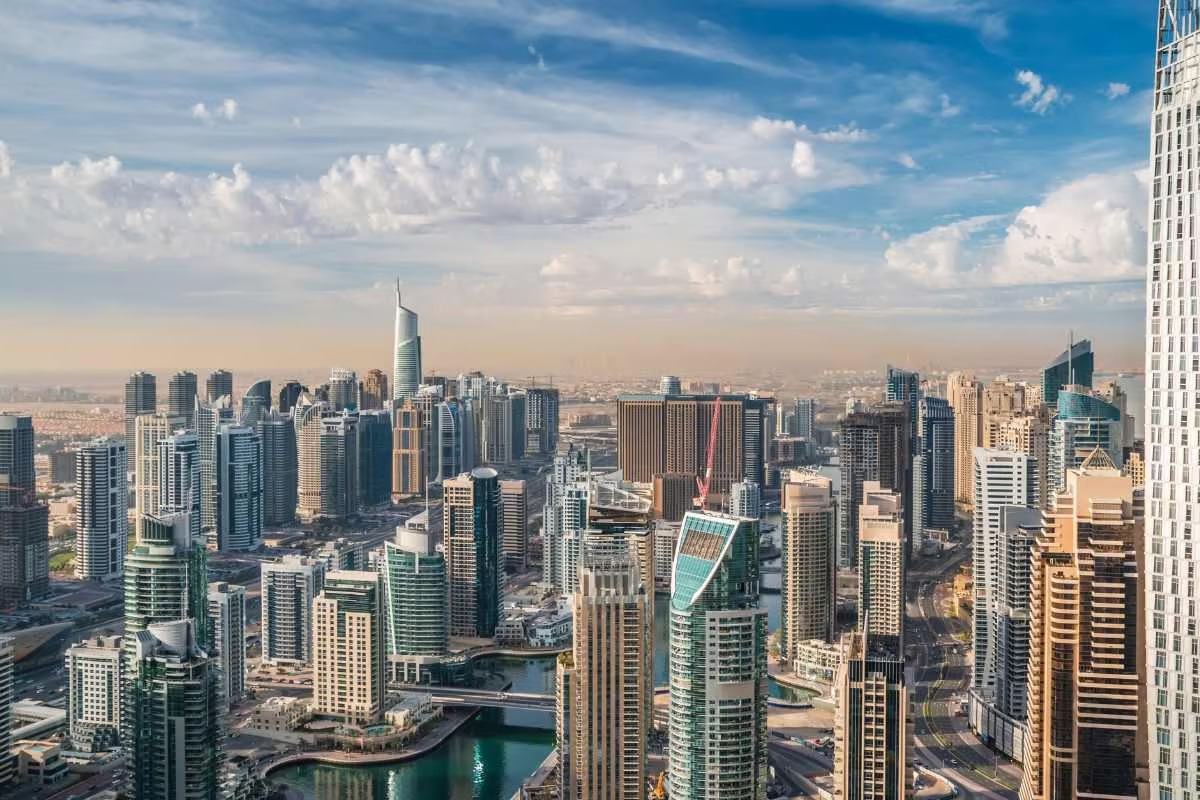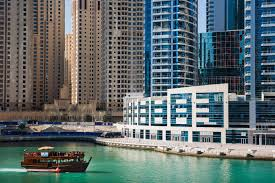Now Reading: Navigating VAT in UAE Real Estate Transactions: A 2025 Overview
-
01
Navigating VAT in UAE Real Estate Transactions: A 2025 Overview
Navigating VAT in UAE Real Estate Transactions: A 2025 Overview
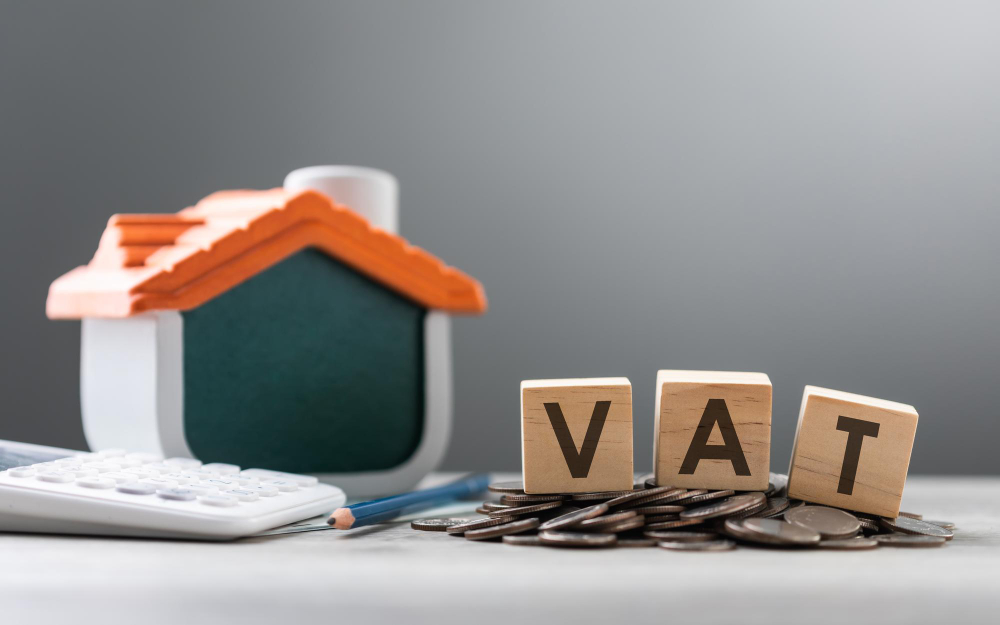
Table of Contents
Introduction
The UAE’s 5% Value-Added Tax (VAT), administered by the Federal Tax Authority (FTA), applies to various real estate transactions, impacting costs and compliance for investors, developers, landlords, and tenants. While residential properties enjoy VAT exemptions, commercial properties and related services are subject to the standard 5% rate. This guide outlines the VAT rules, exemptions, compliance obligations, and strategic considerations for real estate transactions in the UAE in 2025.
VAT Rules for Real Estate Transactions

1. Residential Properties
- VAT Treatment:
- Sale of Residential Properties: The first sale of a new residential property (within three years of completion) is zero-rated (0% VAT), allowing developers to recover input VAT on construction costs. Subsequent sales are exempt from VAT.
- Leasing: Residential leases are exempt from VAT, except for serviced apartments or properties with commercial elements (e.g., hotel-like services), which are subject to 5% VAT.
- Definition: Residential properties include apartments, villas, townhouses, and other dwellings intended for human habitation, excluding commercial or mixed-use properties.
- Implication: Buyers and tenants of residential properties face no VAT costs, making residential real estate tax-efficient. Developers benefit from zero-rating on initial sales, reducing project costs.
2. Commercial Properties
- VAT Treatment:
- Sale and Leasing: Sales and leases of commercial properties (e.g., offices, retail spaces, warehouses) are subject to 5% VAT. This applies to both new and existing properties.
- Vacant Land: Sales of undeveloped (bare) land are exempt from VAT, unless developed for commercial use.
- Implication: Buyers and tenants of commercial properties must budget for 5% VAT, increasing transaction or rental costs. For example, a commercial property lease of AED 100,000 annually incurs AED 5,000 ($1,360) in VAT.
3. Real Estate Services
- VAT Treatment:
- Services related to real estate, such as brokerage fees, property management, legal services, and maintenance, are subject to 5% VAT.
- Construction services for both residential and commercial properties are also taxed at 5%.
- Implication: Investors and developers must account for VAT on ancillary services, which can add 5% to costs like agent commissions (e.g., AED 2,500 VAT on a AED 50,000 commission).
4. Mixed-Use Properties
- VAT Treatment: Properties with both residential and commercial elements (e.g., a building with retail on the ground floor and apartments above) require apportionment. Residential portions are exempt or zero-rated, while commercial portions are taxed at 5%.
- Implication: Developers and landlords must accurately segregate income streams to apply correct VAT treatments, requiring robust accounting systems.
VAT Registration and Compliance
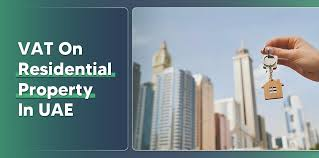
- Mandatory Registration:
- Threshold: Businesses or individuals (including freelancers, developers, or landlords) with annual taxable supplies (e.g., commercial property sales/leases, taxable services) exceeding AED 375,000 ($102,000) must register for VAT with the FTA via the EmaraTax portal
- Non-Residents: Non-resident investors or entities earning UAE-sourced taxable income (e.g., commercial rental income) must register, regardless of the threshold, unless the tenant handles VAT under the reverse charge mechanism.
- Voluntary Registration: Businesses with taxable supplies above AED 187,500 ($51,000) may register voluntarily to recover input VAT on expenses.
- Compliance Requirements:
- Issue VAT-compliant invoices for taxable transactions, including commercial leases and services.
- File quarterly VAT returns, typically within 28 days of the tax period’s end.
- Maintain financial records for five years, per FTA regulations.
- Prepare for the proposed eInvoicing system (consultation open until February 27, 2025), which may mandate digital transaction reporting.
- Penalties:
- Late registration: AED 10,000 ($2,720).
- Late filing or payment: Fines up to AED 50,000 or 300% of the tax due.
- Implication: Landlords and developers with commercial properties must register for VAT if thresholds are met, ensuring timely filings to avoid penalties. Voluntary registration can optimize cash flow by recovering input VAT.
Input VAT Recovery
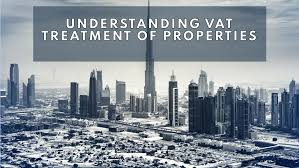
- Eligibility: VAT-registered businesses can recover input VAT paid on business expenses (e.g., construction, maintenance, legal fees) related to taxable supplies (e.g., commercial property sales/leases).
- Restrictions:
- Input VAT on expenses for exempt supplies (e.g., residential leases) is not recoverable.
- For mixed-use properties, input VAT must be apportioned based on the ratio of taxable to exempt supplies.
- Implication: Developers of commercial or mixed-use properties can reduce costs by recovering input VAT, but accurate apportionment is critical to avoid FTA audits.
Special Considerations
Free Zones
- VAT Treatment: Properties in designated Free Zones (e.g., DIFC, JAFZA) are treated as outside the UAE’s VAT scope for certain transactions (e.g., sales/leases between Free Zone entities). However, transactions with mainland UAE entities are subject to 5% VAT.
- Implication: Free Zone-based investors or developers can minimize VAT costs for intra-Free Zone transactions but must comply with VAT for mainland activities.
Real Estate Investment Trusts (REITs)
- VAT Treatment: REITs managing commercial properties are subject to 5% VAT on rental income and sales, while residential properties are exempt. REITs with taxable supplies above AED 375,000 must register for VAT.
- Implication: REIT investors benefit from VAT exemptions on residential assets but must ensure compliance for commercial portfolios, potentially recovering input VAT.
Non-Resident Investors
- VAT Obligations: Non-residents earning taxable income (e.g., commercial rental income) must register for VAT unless the reverse charge applies. The reverse charge shifts VAT liability to the UAE-based recipient (e.g., tenant).
- Implication: Non-residents should assess VAT obligations and consider appointing a tax agent to manage compliance.
Strategic Actions for Stakeholders
- Understand VAT Applicability: Confirm whether transactions (e.g., commercial leases, brokerage fees) are taxable, exempt, or zero-rated to avoid miscalculations.
- Register for VAT: Businesses exceeding AED 375,000 in taxable supplies must register by the deadline to avoid penalties. Consider voluntary registration to recover input VAT.
- Optimize Input VAT Recovery: Track expenses related to taxable supplies and maintain documentation to maximize input VAT claims, especially for commercial developments.
- Implement Accounting Systems: Use software (e.g., QuickBooks, Xero) to manage VAT-compliant invoicing, record-keeping, and apportionment for mixed-use properties.
- Prepare for eInvoicing: Upgrade systems to comply with the proposed eInvoicing system, ensuring real-time transaction reporting by 2025–2026.
- Leverage Free Zones: Structure transactions within Free Zones to minimize VAT liability, while ensuring compliance for mainland dealings.
- Engage Tax Advisors: Consult professionals (e.g., PwC, CLA Emirates) to navigate VAT rules, reverse charge mechanisms, and FTA audits.
- Monitor Home Country Taxes: Non-residents should assess home country tax implications for UAE-sourced real estate income, leveraging Double Taxation Agreements (DTAs) with over 140 countries.
Comparative Advantage
The UAE’s 5% VAT rate is significantly lower than global averages (e.g., 20% in the UK, 19% in Germany), and exemptions for residential properties enhance affordability. For comparison, a $1 million commercial property lease in the UAE incurs $50,000 VAT annually, while a similar lease in the UK would incur $200,000 VAT. The ability to recover input VAT and zero-rate initial residential sales further reduces costs for developers and investors compared to jurisdictions with higher taxes or no recovery options.
Challenges and Considerations
- Compliance Burden: VAT registration, invoicing, and quarterly filings require robust systems and expertise, particularly for commercial property stakeholders.
- Mixed-Use Complexity: Apportioning VAT for mixed-use properties demands accurate accounting to avoid errors or penalties.
- eInvoicing Transition: Businesses must prepare for potential mandatory eInvoicing, requiring investment in digital infrastructure.
- FTA Audits: Increased scrutiny by the FTA necessitates meticulous record-keeping to avoid fines or disallowed input VAT claims.
Conclusion
Navigating VAT in UAE real estate transactions in 2025 requires understanding the distinct treatments for residential (exempt/zero-rated) and commercial (5% VAT) properties, alongside compliance with FTA regulations. By leveraging exemptions, recovering input VAT, and preparing for eInvoicing, stakeholders can optimize costs and ensure compliance. The UAE’s low VAT rate and tax-efficient framework continue to make its real estate market attractive, but proactive planning is essential to manage obligations. For detailed guidance, visit the FTA’s EmaraTax portal (https://www.tax.gov.ae) or consult tax professionals like PwC or CLA Emirates.
WATCH MORE: https://www.youtube.com/watch?v=ON2BuhIa1so
READ MORE: Real Estate Investment Trusts (REITs) in the UAE: Tax Benefits and Opportunities in 2025



